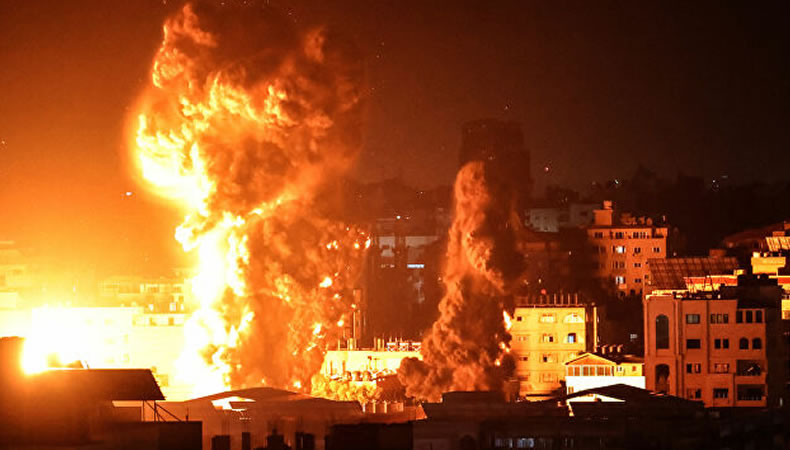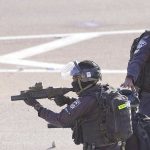In the midst of the Gaza Strip’s hostilities, Egypt has issued an appeal for calm.


The measures come a day after Hamas terrorists fired missiles into the Mediterranean Sea off the coast of central Israel, leading Israel to begin air strikes on militant sites in Gaza on Sunday morning. There were no recorded casualties. In response to Saturday’s rocket firing, Israel said it attacked “a missile production complex and military positions” linked to Hamas in Gaza.
Towards the commencement of the government’s weekly Cabinet meeting, Israeli Prime Minister Naftali Bennett remarked, “Whoever directs missiles at Israel takes responsibility.” In what was the first exchange of fire in months, Palestinian terrorists shot an Israeli contractor working near the border fence on Wednesday, prompting Israel to reply with tank fire at militant positions.
Related Posts
According to an Egyptian ambassador, Egyptian officials have urged Hamas and other Palestinian armed factions in Gaza to quit their “provocative” operations and for Israel to expedite the ceasefire agreements. Since the 11-day battle between Hamas and Israel in May, a tenuous truce mediated by Egypt and international mediators has mainly maintained.
The militant organization claims, however, that Israel has taken no significant moves to remove the siege it established on Gaza with Egypt after the Islamic movement took control of the coastal enclave in 2007. At the same time, the smaller extremist organization Islamic Jihad has warned armed action against Israel if a Palestinian prisoner on hunger strike dies. Hisham Abu Hawash, a member of the Islamic Jihad who is being kept in administrative prison by Israel, has been on a hunger strike for almost 130 days.
Administrative detention in Israel is a contentious mechanism that permits suspects to be kept indefinitely without prosecution. Israel claims that the procedure is vital in order to keep dangerous detainees in prison without revealing sensitive intelligence that may expose sources.



















